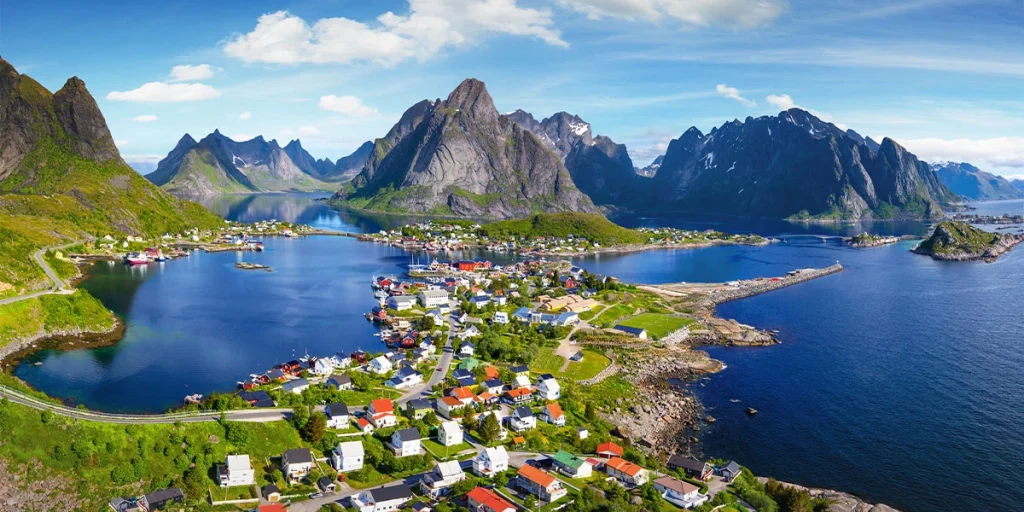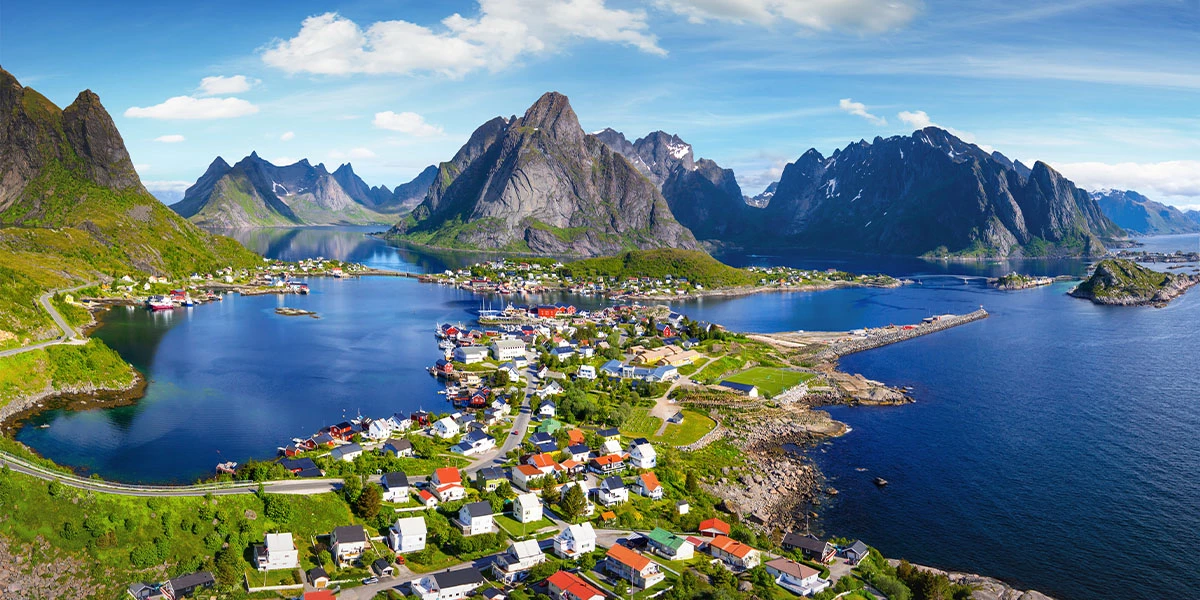Norway stands out as a highly attractive European country known for its progressive approach to freedom, exceptional education, and abundant career opportunities. For many individuals considering relocating abroad, Norway is an appealing option for a fresh start or to advance professionally. However, for anyone planning to stay in Norway long-term, understanding the requirements for obtaining a residence permit is crucial. This comprehensive guide explores the process of obtaining a residence permit in Norway, the different types of permits, application requirements, and all the essential information you need to navigate the system effectively.

What is a Norway Residence Permit and Why is It Necessary?
If you’re planning to move to Norway for purposes beyond short-term tourism—such as studying, working, or joining a family—you will need a residence permit. A tourist visa is only sufficient for short visits of up to 90 days, but for anyone wishing to live and work in Norway for an extended period, obtaining a residence permit is a must. The residence permit, granted by the Norwegian Directorate of Immigration (UDI), allows you to reside in Norway for various reasons such as employment, education, or family reunification.
Having a residence permit means that you can legally live, work, and study in Norway, depending on the type of permit you acquire. Moreover, residents with a valid permit also receive a residence card, which allows travel within the Schengen Area under specific conditions. It is important to note that your residence permit is tied to the reason for your stay—if the purpose ends, such as finishing a job or education, your permit may also end unless renewed under a different category.
Types of Residence Permits in Norway
Norway offers a variety of residence permits depending on your purpose of stay, including:
- Work Permit
- Study Permit
- Family Reunification Permit
- Permanent Residence
Each of these permits has different requirements and offers distinct benefits. Let’s explore the process of obtaining each type in more detail.
How to Apply for a Norway Residence Permit
For Turkish citizens or those with a residence permit in Turkey, applications for a Norwegian residence permit must be submitted through VFS Visa Application Centers rather than directly at the Norwegian Embassy. Centers are located in major cities such as Istanbul, Ankara, Izmir, and Antalya. Applicants need to provide the necessary documentation and pay an application fee to start the process.
The specific requirements for a residence permit vary depending on the purpose—whether for work, study, family reunification, or others. Below, we break down the key application requirements and processes for each category.
Obtaining a Work Permit in Norway
To obtain a residence permit for work in Norway, applicants must fulfill certain conditions, which vary based on the type of job and employer. Work permits are especially appealing to professionals, including skilled workers, engineers, IT professionals, and health workers. Here are the essential requirements to secure a work permit:
- Education or Skills Verification: Proof of qualifications such as a university degree or documents demonstrating relevant professional experience.
- Job Offer: A full-time job offer from a Norwegian employer is mandatory.
- Salary and Position: The job offer must include conditions, such as salary and benefits, that align with Norwegian standards for the industry and educational level.
- License or Certification: For jobs that require specific certifications, such as in healthcare or engineering, applicants must provide license verification.
The rights and limitations that accompany a work permit include:
- Permit Duration: The length of the work permit is usually tied to the level of education required for the position. For example, positions requiring vocational school education are granted permits for up to one year, while those requiring a university degree may be eligible for up to three years.
- Path to Permanent Residency: Work permits allow individuals to accumulate time toward permanent residence eligibility. After three years of continuous work, you may apply for permanent residency.
- Family Sponsorship: Your spouse and children can also apply for residence permits to live with you in Norway.
Studying in Norway: How to Obtain a Study Permit
Students wishing to study in Norway can apply for a study permit, often referred to as a study visa. Norway offers higher education opportunities at some of the most reputable institutions in Europe. However, Norwegian universities generally do not offer study permits for education below the bachelor’s degree level to non-EU nationals.
To obtain a study permit, you must:
- Be Admitted to a Norwegian Institution: You must have an admission letter from an accredited university in Norway recognized by the NOKUT (Norwegian Agency for Quality Assurance in Education).
- Proof of Financial Support: You need to provide evidence of sufficient funds to cover living expenses in Norway for the duration of your studies. This is often done through a bank statement.
- Proof of Accommodation: You will need documentation verifying your place of residence while studying in Norway.
- Intent to Return: You must prove that you intend to return to your home country after completing your education.
Study permits allow you to:
- Work Part-Time: Students are allowed to work up to 20 hours per week during the academic term and full-time during holidays.
- Work During Vacations: Full-time work is permitted during official breaks.
- Restrictions: You are not permitted to start your own business or work in self-employment.
Family Reunification Residence Permit
For those who wish to live in Norway to be with family members already residing there, a family reunification permit may be obtained. This permit is available to spouses, children, and dependent parents of individuals living in Norway.
The requirements for family reunification include:
- Proof of Family Relationship: You will need to provide documents such as a marriage certificate or birth certificate that proves your relationship with the family member in Norway.
- Sponsor’s Residence Status: The family member in Norway (the sponsor) must provide proof of legal residence or citizenship.
- Income Requirement: The sponsor must demonstrate that they have sufficient income to support the family members applying for residence.
Rights and Restrictions:
- Individuals with family reunification permits can work full-time in Norway.
- The permit’s duration depends on the sponsor’s residence status.
Permanent Residence Permit in Norway
A permanent residence permit is an opportunity for those who have lived continuously in Norway for at least three years. Meeting specific requirements is essential to qualify for permanent residency:
- Norwegian Language Courses: You must have completed at least 300 hours of Norwegian language courses.
- No Criminal Record: Applicants must not have any criminal records.
- Valid Residence History: You must have continuously held valid residence permits, without any gaps or illegal stays.
Application Process for Residence Permits
The residence permit application process usually involves the following steps:
- Gather Documentation: Collect all the required documents, such as proof of qualifications, proof of accommodation, and financial guarantees.
- Submit Application at VFS Centers: Schedule an appointment and submit your application at VFS Visa Application Centers. These centers accept applications on behalf of the Norwegian Embassy.
- Biometric Data and Interview: You may need to provide biometric data (such as fingerprints) and attend an interview.
- Await Decision: The processing time varies but is typically several weeks to a few months, depending on the type of permit.
Costs and Fees
- Application Fees: The cost of applying for a residence permit depends on the type of permit but generally ranges between NOK 4,000 to NOK 10,000.
- Additional Costs: These can include fees for translations, document certifications, and travel for biometrics collection.
Tips for a Successful Application
- Prepare Early: Ensure you start gathering your documentation well in advance, as processing can take time.
- Proofread Carefully: Any discrepancies or incomplete documentation can lead to delays or rejection.
- Seek Legal Assistance: For complex applications, consider hiring an immigration consultant.
Conclusion and Recommendations
Obtaining a residence permit in Norway is a detailed process that requires careful planning and a thorough understanding of the requirements. Whether you are coming to Norway for work, study, or family reasons, it is essential to fulfill the requirements meticulously and prepare all documents accordingly. Once you understand the process, obtaining a permit can be a manageable and rewarding endeavor, opening the door to Norway’s rich opportunities for personal and professional growth.
If you are interested in learning more about living and working in Norway, consider exploring our related articles on finding a job in Norway, studying at Norwegian universities, or family benefits available to residents.

